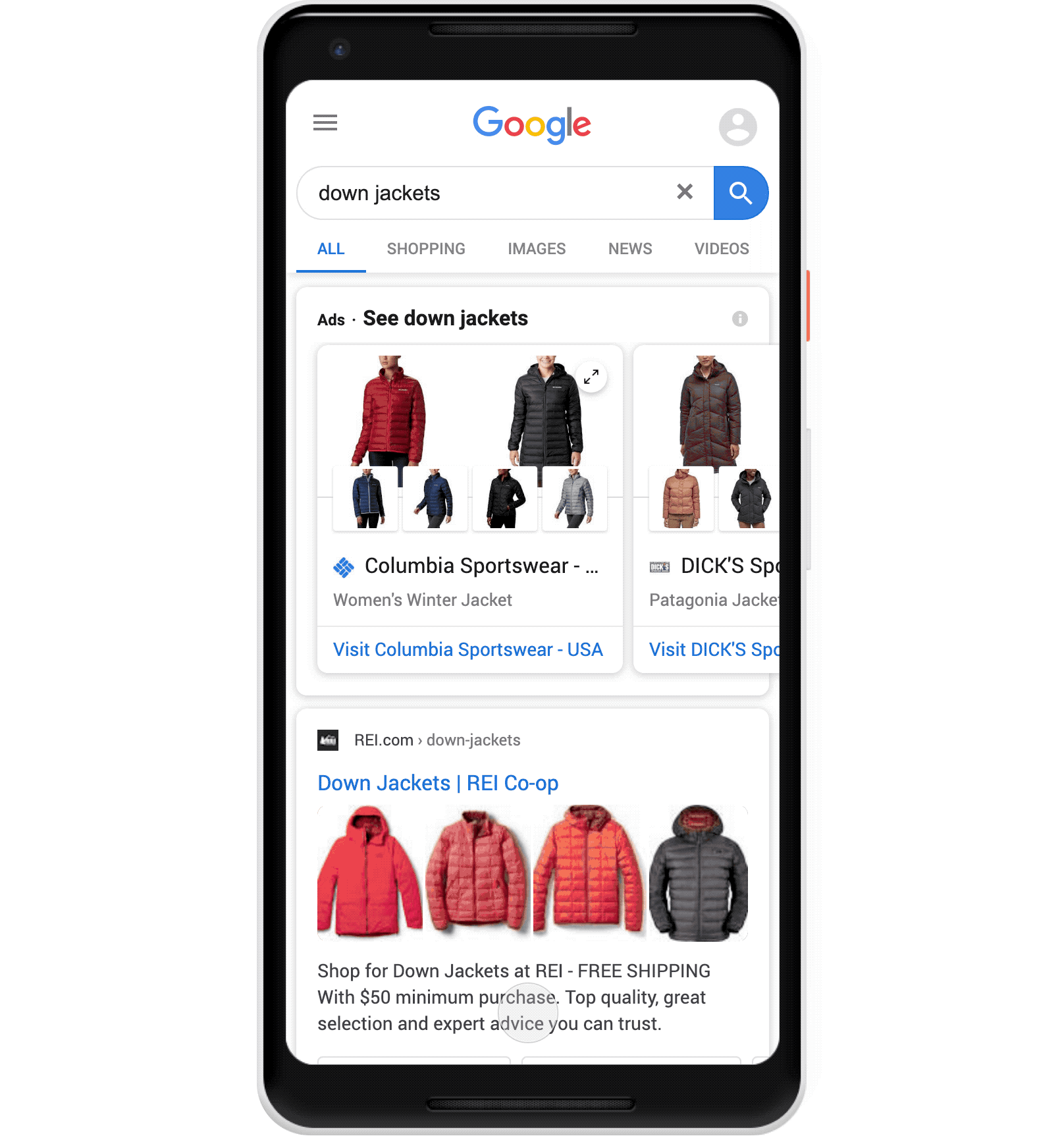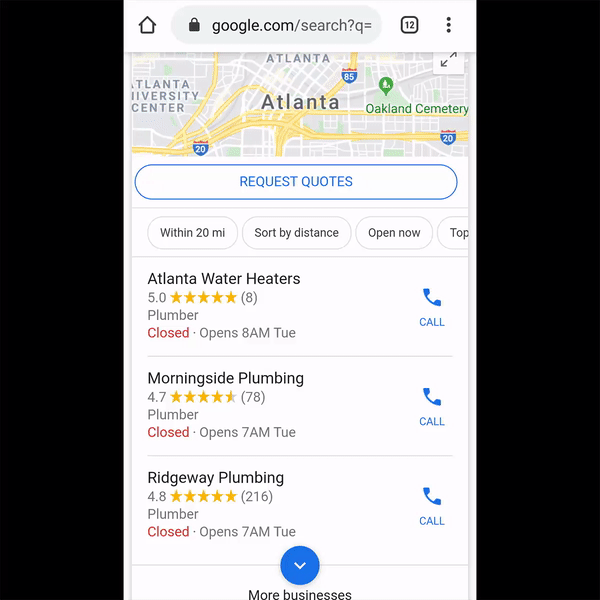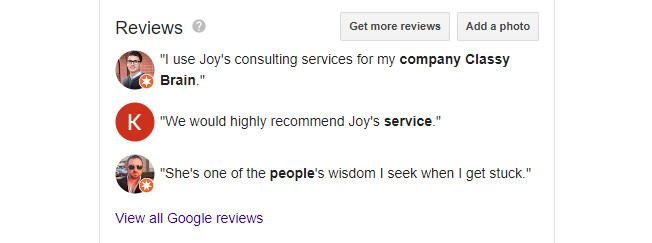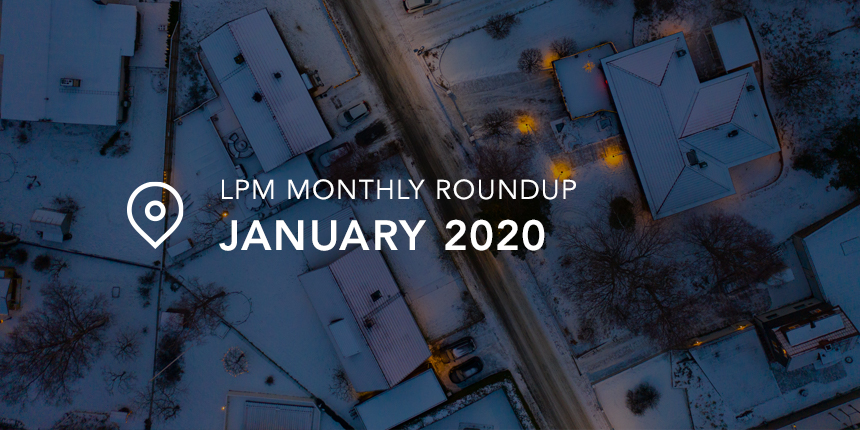The holidays are behind us and it’s time to go over the search engine updates that snuck by while we were gorging on sweet treats. There were a few noticeable changes from both the tail end of 2019 and the first month of 2020, including Google kicking off the year with a core algorithm update that seriously impacted two specific industries. So, let’s delve into that news and more in this month’s LPM roundup.
The January 2020 Google update is live!
Google rolls out algorithm updates regularly but it has only been announcing them beforehand since 2019. It’s an appreciated courtesy, but most effects simply aren’t known until ranking fluctuations can be observed. With this most recent update, the health and finance industries have seen the most changes on Google’s search engine results pages (SERPs).
Previous core algorithm updates have focused on lowering the ranking of predatory financial domains and medical websites that have questionable authority. Unfortunately, many legitimate businesses were caught up in these punishments. Although Google is now better at distinguishing between problematic and genuine web pages, it’s a good time to observe if your pages have been affected by this most recent patch if you work in the medical or financial industries.
As always, most categories will see minor movement (e.g. travel and retail) but not nearly to the same degree. Stay informed about updates so you can accurately attribute ranking changes to either your own edits or to Google’s tinkering.
Google fully rolls out the organic product carousel
We’ve covered Google’s product carousels before and now they have come into full effect. When users search for retail terms such as clothing or electronics, Google will display actual products in addition to the usual search results. These products are shown in a carousel at the top of SERPs, within product knowledge panels, and even in branded knowledge panels.

For a business to have its products display organically, it must submit its product feed to Google, make sure the product markup is validated, and create an additional feed via Manufacturer Center. It’s no secret that Google is trying to poach product-related market share from Amazon; businesses that take advantage of organic product listings will surely reap the benefit.
Google to de-duplicate featured snippets
Google will no longer repeat featured snippet listings on page one. The reaction to this news was mixed among webmasters as they fear this may negatively impact the websites being featured. After all, many users seeking more information about the snippet scroll down to find the website source. Few click the snippet itself to be directed to the domain of origin.
If Google finds that the removal of redundant links does in fact worsen the user experience, this change may be reverted. For now, being a featured snippet means that your website will not also be listed as one of the typical blue links on the first page.
Google tests review carousel in local knowledge panel
Google is testing reviews in a carousel format inside business profiles. Of course, review excerpts are nothing new, displaying as snippets when they match user queries with full reviews being shown if a user clicks on the star rating. But this time the additional information is displayed whether or not the reviews contain keywords from the user’s query—and with no need for the user to click “See all reviews”.

Image credit: Aneel Badyal
If this test parlays into a feature, it means that the text of featured reviews will be unavoidable for businesses. The carousel is in a prominent position right below the business’s name and above the contact information. This places even more weight on reviews and reputation management for businesses. If a positive review is featured then all is well, but if a negative review is displayed, businesses will need to do everything they can to generate new ones to take its place.
Google unveils custom service lists
Google now allows service area businesses to specify exactly the types of services they offer customers. While this is largely handled by broad categorizations like “plumber” or “mover”, Google will now encourage businesses to rank better by suggesting more specific subcategories like “install faucet” and “assemble furniture”. Niche businesses are more likely to be able to state exactly what services they perform—rather than the closest match—while more generalized businesses can display their specific range of services in full.
Google has also changed the layout of service areas on mobile browsers, displaying a truck icon and the city served. When you click on it, you will be shown other areas the business has listed in Google My Business (GMB). It appears that the first city displayed is dynamic, defaulting to the closest city to the searcher.
Google introduces “Request quotes” in local service ads
Users are now able to immediately request a quote through Google’s local service ads (LSAs). These ads, which are reserved for “Google Guaranteed” service area businesses, formerly delivered phone leads to local businesses participating in the program. The new “Request quotes” button utilizes Google messaging rather than having users place a phone call. That means business owners must download the GMB app to access messages.

Image credit: Tom Waddington
But there are problems. For instance, there is no way to consolidate multi-location businesses, which would have previously required their own phone numbers. Messaging does, however, allow the business to set specific messaging hours which do not need to align with their business hours. As customers generally expect a response within minutes, it is important for service-based businesses to have staff dedicated to responding to messages.
This new functionality is consistent with Google’s broader effort to make GMB an engagement and transaction platform. It has been pushing social interactions on GMB for some time, and is slowly testing ways to monetize Google beyond advertisements.
Google is auto-generating Google Posts with photos (and you can’t delete them)
Google has grown very adept at understanding what is contained within an image just by running it through its algorithms. For example, it can determine if an image uploaded to a jewelry store’s page contains a necklace or a display case. With this technology, Google has begun to auto-generate Google Posts for some businesses that upload photos to their listing.
The good news? Google Posts can improve rankings. The bad? Google does not allow these businesses to delete the auto-generated posts. Google Posts expire in seven days, but it is still a problem for frequently posting businesses to see their profile cluttered. Hopefully Google will have gotten the message across (“Please use Google Posts!”) and it will soon stop generating them on a business’s behalf. Either that or at least allow business owners to delete these posts at their discretion.
Google displays “Get more reviews” for the local knowledge panels you manage
In another news story that shows Google is pushing reviews, the “Write a review” button in the local knowledge panel has been replaced with “Get more reviews”. When you click the new button, Google gives you a way to promote the ability to leave reviews for your business, as opposed to taking you to write a review.

Image credit: Joy Hawkins
You will be given options such as linking the review page to Facebook, Twitter, emailing it, or even giving a direct link for users to leave you a review. With all the Google review news in 2019 and the multiple review stories starting 2020, you can bet that reviews will have a larger impact on rankings than ever before.
DuckDuckGo is now a default Android search engine option in the EU
Google has been subject to a number of anti-trust regulations coming out of the EU. In a recent episode, Google was fined for imposing restrictive clauses in contracts with third-party websites, which prevented Google’s rivals from placing their search adverts on these websites. As of 2020, European regulators are compelling Google to include DuckDuckGo and others as default search options on all Android devices.
Search engine options have always been available through settings, but this new regulation requires these options to be presented to users as they boot up new devices. This change will certainly make DuckDuckGo happy, but Apple is also set to benefit—being the provider of DuckDuckGo’s map data. Few businesses have the direct relationship necessary to upload their information easily onto Apple, and will need to partner with citation providers (such as ourselves!) to boost their non-Google visibility.




